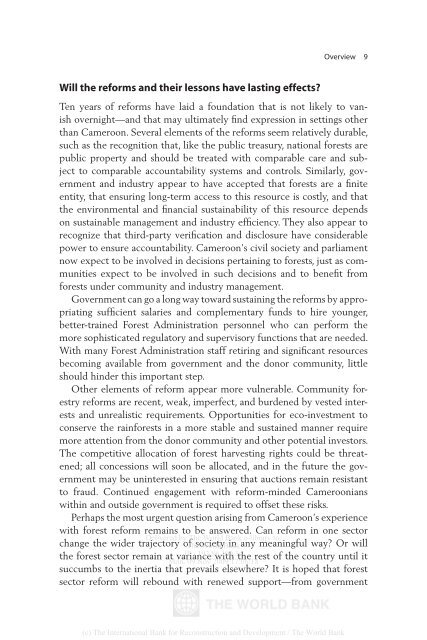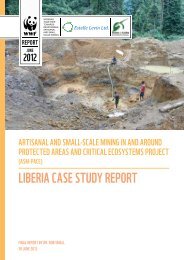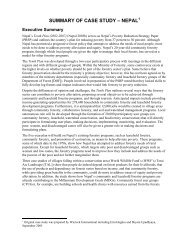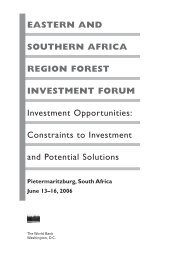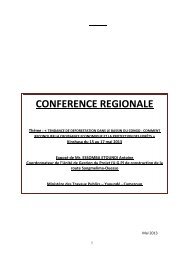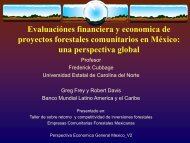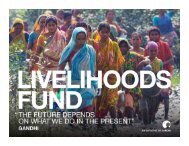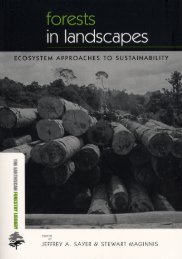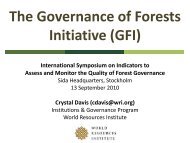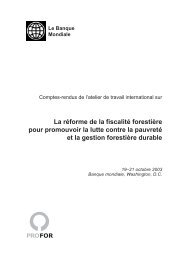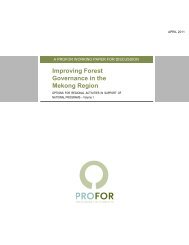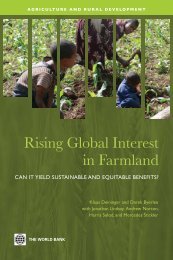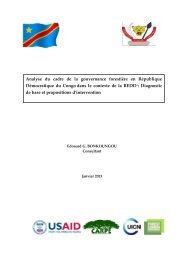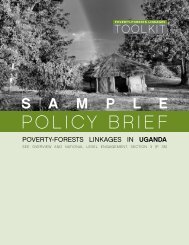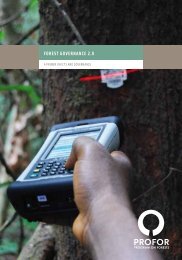The Rainforests of Cameroon - PROFOR
The Rainforests of Cameroon - PROFOR
The Rainforests of Cameroon - PROFOR
- No tags were found...
You also want an ePaper? Increase the reach of your titles
YUMPU automatically turns print PDFs into web optimized ePapers that Google loves.
Overview 9Will the reforms and their lessons have lasting effects?Ten years <strong>of</strong> reforms have laid a foundation that is not likely to vanishovernight—and that may ultimately find expression in settings otherthan <strong>Cameroon</strong>. Several elements <strong>of</strong> the reforms seem relatively durable,such as the recognition that, like the public treasury, national forests arepublic property and should be treated with comparable care and subjectto comparable accountability systems and controls. Similarly, governmentand industry appear to have accepted that forests are a finiteentity, that ensuring long-term access to this resource is costly, and thatthe environmental and financial sustainability <strong>of</strong> this resource dependson sustainable management and industry efficiency. <strong>The</strong>y also appear torecognize that third-party verification and disclosure have considerablepower to ensure accountability. <strong>Cameroon</strong>’s civil society and parliamentnow expect to be involved in decisions pertaining to forests, just as communitiesexpect to be involved in such decisions and to benefit fromforests under community and industry management.Government can go a long way toward sustaining the reforms by appropriatingsufficient salaries and complementary funds to hire younger,better-trained Forest Administration personnel who can perform themore sophisticated regulatory and supervisory functions that are needed.With many Forest Administration staff retiring and significant resourcesbecoming available from government and the donor community, littleshould hinder this important step.Other elements <strong>of</strong> reform appear more vulnerable. Community forestryreforms are recent, weak, imperfect, and burdened by vested interestsand unrealistic requirements. Opportunities for eco-investment toconserve the rainforests in a more stable and sustained manner requiremore attention from the donor community and other potential investors.<strong>The</strong> competitive allocation <strong>of</strong> forest harvesting rights could be threatened;all concessions will soon be allocated, and in the future the governmentmay be uninterested in ensuring that auctions remain resistantto fraud. Continued engagement with reform-minded <strong>Cameroon</strong>ianswithin and outside government is required to <strong>of</strong>fset these risks.Perhaps the most urgent question arising from <strong>Cameroon</strong>’s experiencewith forest reform remains to be answered. Can reform in one sectorDelivered by <strong>The</strong> World Bank e-library to:change the wider trajectory <strong>of</strong> <strong>The</strong> society World Bank in any meaningful way? Or willthe forest sector remain at variance IP : 192.86.100.34 with the rest <strong>of</strong> the country until itMon, 09 Nov 2009 17:06:18succumbs to the inertia that prevails elsewhere? It is hoped that forestsector reform will rebound with renewed support—from government(c) <strong>The</strong> International Bank for Reconstruction and Development / <strong>The</strong> World Bank


